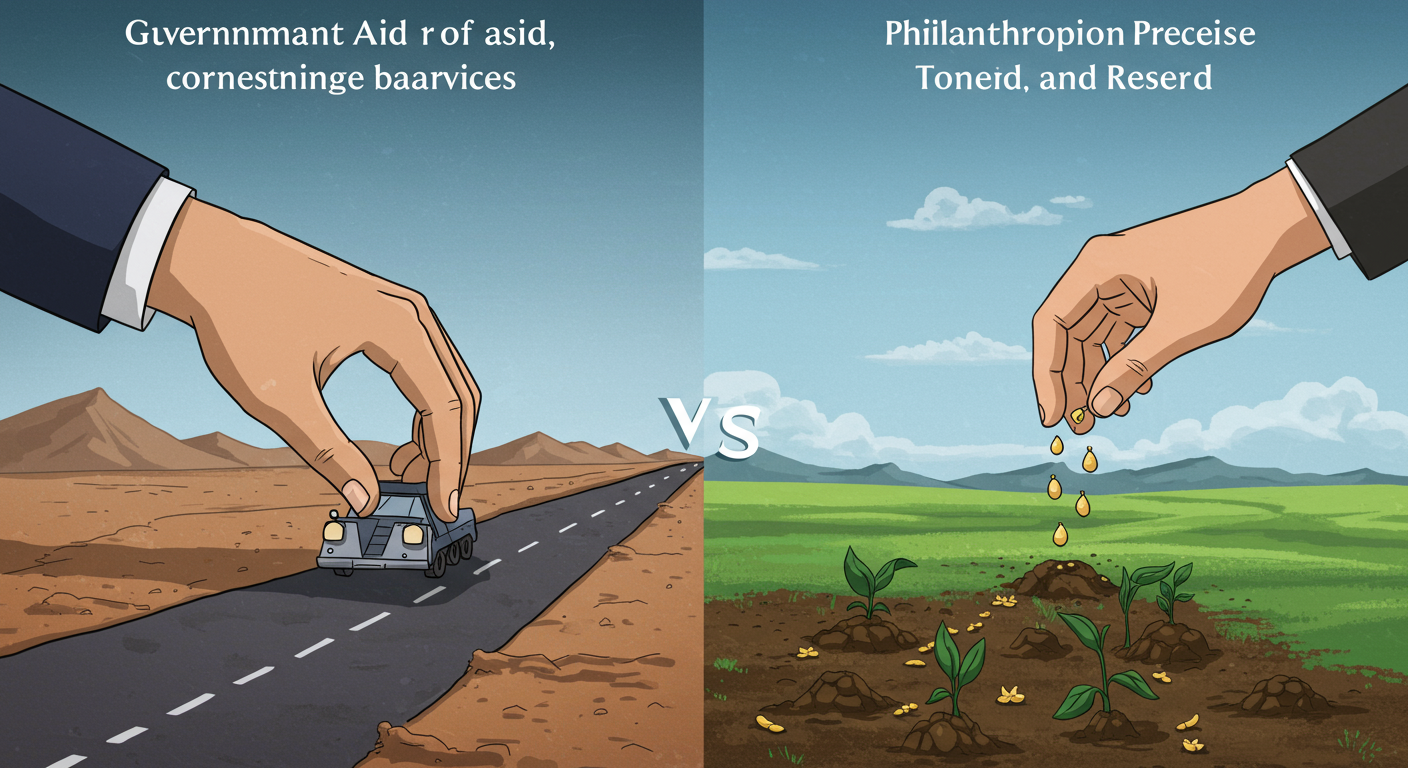
I've been reflecting on Bill Gates (be@breakthroughenergy.org)' recent statement regarding the role of the Gates Foundation, where he firmly stated that their job is “not to replace US aid” Bill Gates on foundation’s role; not replacing US aid: ‘That’s not our job’. This clarification, for me, cuts to the very heart of the distinction between targeted philanthropy and the comprehensive, systemic responsibilities of national governments.
Bill Gates (be@breakthroughenergy.org), with his immense influence and the colossal resources of the Gates Foundation (formerly the Bill & Melinda Gates Foundation, which he co-chaired with Melinda French Gates (melinda@pivotalventures.org) until 2024, as noted in his Wikipedia entry), has undeniably been a force for good in global health and development. Yet, his clear demarcation of roles resonates deeply with my long-held perspectives on the unique imperatives of national entities. Philanthropy, however impactful, is designed to be catalytic, to address specific problems, and to drive innovation where traditional systems might falter. It is not, and cannot be, a substitute for a nation's commitment to its people or a superpower's responsibility in global aid.
This brings to mind my earlier reflections on the concept of a "level playing field." In my blog post, "Level Playing Field ?," I argued that such a field simply does not exist across nations due to inherent differences in resources, socio-political structures, and economic ecosystems. Sachin Bansal (sachin.bansal@navi.com), the co-founder of Flipkart, and even figures like Donald Trump, have voiced concerns about international competition and the need for protectionist measures, whether it's "Buy American" or concerns about "capital dumping." While these perspectives have their own complexities, they underline a fundamental truth: each nation operates within its unique parameters, and its government is ultimately responsible for creating an environment conducive to its citizens' well-being and economic stability. A foundation, no matter its wealth, cannot assume this sovereign duty.
Consider Nandan Nilekani's ambitious initiative to expand Digital Public Infrastructure (DPI) to 50 countries in five years, which I discussed in my blog, "Digital Public Infra to Reach 50 Nations in 5 Years: Nilekani." This is a monumental undertaking focused on societal progress through technology. While philanthropic entities might support components of such infrastructure, the sheer scale, strategic importance, and long-term maintenance of DPI require national governmental commitment and international cooperation on a scale that only states can orchestrate.
Similarly, in my thoughts on "Extracting Water from Air : Now Electricity from Air?," I highlighted the urgent need for innovative solutions to water scarcity and cheap, non-polluting power. India's "Mission Mausam," for example, is a governmental undertaking to manipulate weather patterns. These are fundamental challenges that require national policy, widespread deployment, and sustained public investment—far beyond the scope of even the most generous private foundation. The comments from climate scientists like Katharine Hayhoe and Michael E. Mann (mmann00@sas.upenn.edu), reacting to Bill Gates (be@breakthroughenergy.org)' recent climate memo (as noted in his Wikipedia entry), also underscore how systemic issues like climate change intertwine with poverty and health, demanding coordinated governmental action alongside philanthropic efforts.
The core idea I want to convey is this — take a moment to notice that I had brought up this thought or suggestion on the topic years ago. The clear delineation Bill Gates (be@breakthroughenergy.org) draws between philanthropy and governmental aid is not merely an operational boundary; it's a profound recognition of different roles in the global tapestry of development. Private foundations can innovate, demonstrate, and advocate, but national governments are tasked with the foundational responsibility of comprehensive welfare, strategic infrastructure, and long-term societal resilience. Our collective future depends on understanding and honoring these distinct, yet complementary, roles.
Regards, Hemen Parekh
Of course, if you wish, you can debate this topic with my Virtual Avatar at : hemenparekh.ai






No comments:
Post a Comment